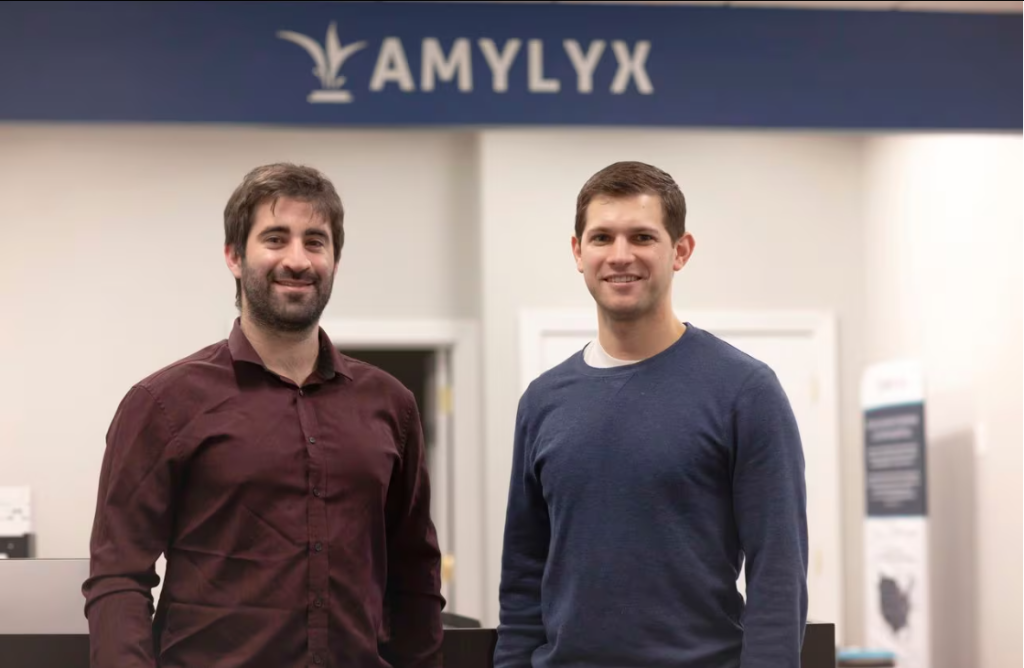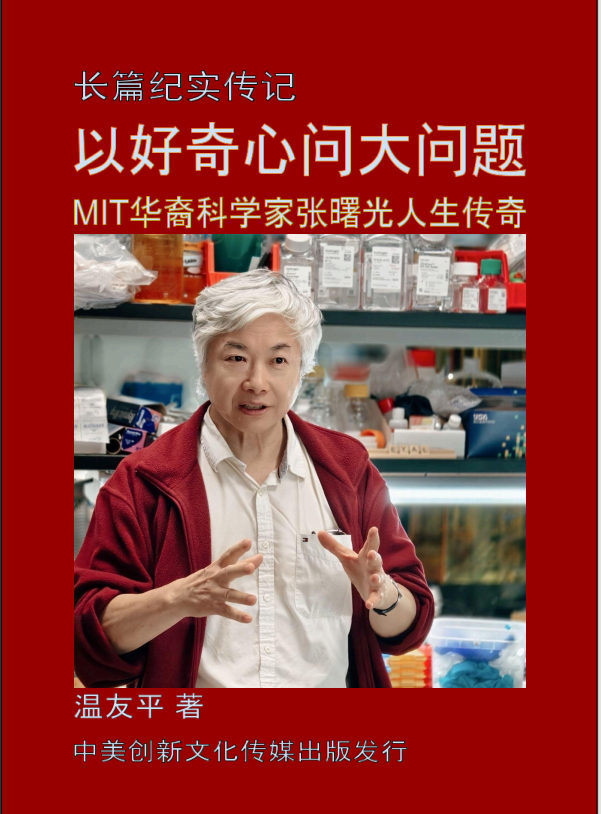【中美创新时报2024年3月9日讯】(记者温友平编译)剑桥生物技术公司 Amylyx Pharmaceuticals 于 2022 年获得了一种有争议且昂贵的治疗肌萎缩侧索硬化症(ALS)药物的批准,该公司周五表示,其治疗方法在一项大型临床试验中未能为患者带来任何益处,但情况却出现了惊人的逆转。该公司目前正在考虑将该药物撤出市场,鉴于缺乏针对这种致命疾病的有效治疗方法,这对 ALS 患者、他们的家人和医生来说是一个重大打击。《波士顿环球报》记者乔纳森·萨尔兹曼(Jonathan Saltzman)对此作了如下详细报道。
根据 Amylyx 的最新数据,截至去年第三季度末,美国约有 3,900 名 ALS 患者正在服用这种名为 Relyvrio 的药物。
该药物于 2022 年 9 月获得批准,尽管美国食品和药物管理局的一个顾问小组最初建议该机构以薄弱的科学证据为由拒绝该药物。
后来,在受到这种致瘫性和致命性神经系统疾病影响的患者和家属的痛苦恳求下,以及 Amylyx 提供了更多的临床数据(据称显示该药物可以延长患者的生命)后,该小组改变了立场。
Amylyx 的创始人、布朗大学毕业生约书亚·科恩 (Joshua Cohen) 和贾斯汀·克利 (Justin Klee) 当时做出了不同寻常的承诺,如果一项更长期、更大规模的研究表明该药物无效,则将把 Relyvrio 从市场上撤下。
周五,Amylyx 发布了一项名为 Phoenix 的为期 48 周的后期研究的最终结果,该研究在美国和欧洲的 70 多个试验点涉及 664 名 ALS 患者。在 ALS 功能评定量表上,Relyvrio 未能优于安慰剂,该量表衡量患者执行日常生活任务、呼吸、行走、说话和吞咽的能力。
担任这家成立 11 年的公司联席首席执行官的科恩和克利在一份声明中表示,“在早期试验中取得积极数据后,我们对 Phoenix 结果感到惊讶和深感失望”。
他们表示,他们将在未来八周内与监管机构和 ALS 社区成员讨论该药物的计划,“其中可能包括自愿从市场上撤回”该药物。与此同时,高管们表示,公司已决定“暂停推广”该药物。
消息公布后,Amylyx 的股价暴跌超过 80%。
Relyvrio 每位患者每年的费用约为 163,000 美元。该药物去年为 Amylyx 带来了近 3.81 亿美元的收入。
据麻省大学陈医学院称,美国每年估计有 6,000 人被诊断出 ALS(也称为卢伽雷氏病)。它影响大脑和脊髓的神经细胞,逐渐剥夺患者说话、进食、最后呼吸的能力。尽管医生和研究人员尽了最大努力,但大多数患者在诊断后三到五年内死亡。
据美国疾病控制与预防中心称,截至 2017 年,估计有 31,000 名美国人患有 ALS。
马萨诸塞州总医院神经科主任梅里特·库德科维奇(Merit Cudkowicz)博士是一项针对 137 名患者的小型中期研究的联合首席研究员,该研究最终获得了批准。他们,还有田野。” 尽管如此,她表示,在得出结论之前,她需要查看验证性研究的所有数据。
“我仍然坚信,基于一项积极研究的批准方法,以及在 17-18 个月内完成的第二项更大、时间更长的研究,是治疗像 ALS 这样严重、危及生命的疾病的方法,”库德科维奇在一份电子邮件报告中写道。
非营利组织 ALS 协会周五表达了类似的观点,称其支持 Relyvrio 的早期批准,因为“其安全性没有任何问题”,而且早期试验的结果是积极的。
“虽然今天的消息令人失望,但有超过 50 种潜在的治疗方法处于临床开发阶段,其中有十多种处于[后期]试验中,”患者权益组织在一份声明中表示。
FDA 咨询委员会的一名成员曾两次投票反对建议批准 Relyvrio,他表示最新的结果“令人失望,但这当然并不令人震惊”。
约翰·霍普金斯大学布隆伯格公共卫生学院的流行病学家卡莱布·亚历山大(Caleb Alexander)博士说:“从迄今为止的信息来看,很难想象证据会比模糊更好。”
他说,Amylyx 应该将该药物撤出市场。
他说:“除了公司股东之外,产品不起作用不符合任何人的利益。”
自1995年以来,只有两种药物被批准用于治疗ALS,而且效果都不是很好。过去十年中,数十项潜在治疗方法的临床试验均以失败告终。
Amylyx 开发了两种分子的组合——苯丁酸钠和牛磺二醇——它认为这有助于延缓神经细胞的死亡。Relyvrio 是一种粉末,可以与水混合口服,也可以通过饲管给药。
早期、中期临床试验发现,与安慰剂相比,该药物将生存期平均延长了 4.8 个月。库德科维奇称这对患者意义重大,因为“我们没有任何其他药物可以减缓功能丧失并延长生命。”
尽管如此,对该药物的质疑依然存在。 尽管该药物在加拿大获得批准,Amylyx 在加拿大以 Albrioza 品牌销售该药物,但欧洲药品监管机构一再得出结论,该药物不应进入市场,理由是对该治疗效果的担忧。
在美国,Relyvrio 经历了一次不同寻常的监管审查过程,在此过程中,它的财富起起落落,然后又上涨。
2022 年 3 月,独立医学专家小组以 6 比 4 的投票结果建议 FDA 拒绝 Amylyx 的申请。在成员们看来,这是一个艰难的决定,专家组得出的结论是,根据小型试验,Amylyx 未能提出令人信服的证据来证明该药物是有效的。
六个月后,FDA 在听取了患者和家属的请求并提供了更多数据后,重新召集了顾问小组进行第二次投票。Amylyx 高管表示,该药物降低了脊髓液中与 ALS 和阿尔茨海默病相关的生物标志物的水平。该公司还提供了对其临床数据的新分析,表明与疾病进展的历史数据相比,其治疗方法可帮助 ALS 患者延长最多 11 个月的寿命。
FDA 工作人员表示,生物标志物数据与患者的改善没有明确的联系。该机构似乎也不相信该公司的生存分析。
尽管如此,咨询委员会却改变立场,以 7 比 2 的投票结果支持了该药物。不久之后,FDA 批准了该药物。
总部位于波士顿的非营利监管组织临床和经济审查研究所 (ICER) 于 2022 年 8 月表示,如果该药物获得批准,根据其对患者的临床益处,其定价应为 9,100 至 30,600 美元,该组织表示 范围从“小到大”。
周五,ICER 首席执行官莎拉·埃蒙德 (Sarah Emond) 表示,她的组织对最新的试验结果感到失望。她说,Relyvrio 现在将作为一种效果不确定的药物“不负责任定价”的又一个例子而被人们铭记。
题图:Amylyx 联合创始人约书亚·科恩(左)和贾斯汀·克利在剑桥。美联社
附英文原文报道:
In setback for ALS patients, Cambridge biotech’s drug fails clinical trial, could be withdrawn from market
By Jonathan Saltzman Globe Staff,Updated March 8, 2024
Amylyx cofounders Joshua Cohen (left) and Justin Klee in Cambridge.ASSOCIATED PRESS
In a startling reversal, Cambridge biotech Amylyx Pharmaceuticals, which won approval of a controversial and costly drug for amyotrophic lateral sclerosis in 2022, said Friday that its treatment failed to provide any benefit to patients in a large clinical trial.
The company is now considering withdrawing the drug from the market, a significant blow to ALS patients, their families, and doctors, given the dearth of effective treatments for the fatal disease.
About 3,900 ALS patients were taking the medicine, called Relyvrio, in the United States at the end of the third quarter of last year, according to the most recent numbers from Amylyx.
The drug was approved in September 2022, even though an advisory panel to the Food and Drug Administration initially recommended the agency reject it, citing weak scientific evidence.
That panel later reversed itself amid wrenching pleas from patients and families affected by the paralyzing and fatal neurological condition, and after Amylyx presented more clinical data that it said showed the medicine extended patients’ lives.
The founders of Amylyx, Brown University graduates Joshua Cohen and Justin Klee, made an unusual pledge at the time to pull Relyvrio from the market if a longer, larger study showed that the drug wasn’t effective.
On Friday, Amylyx released the final results of a 48-week, late-stage study called Phoenix involving 664 people with ALS at more than 70 trial sites in the United States and Europe. Relyvrio failed to outperform a placebo on an ALS functional rating scale that measures patients’ ability to perform daily living tasks, breathe, walk, speak, and swallow.
“We are surprised and deeply disappointed by the Phoenix results following the positive data” in the earlier trial, Cohen and Klee, who serve as co-chief executives of the 11-year-old company, said in a statement.
They said they would speak to regulators and members of the ALS community over the next eight weeks about plans for the drug, “which may include voluntarily withdrawing” it from the market. In the meantime, the executives said, the company has decided to “pause promotion” of the medicine.
Amylyx’s stock plunged more than 80 percent after the announcement.
Relyvrio costs about $163,000 a year per patient. The drug generated nearly $381 million in revenue for Amylyx last year.
ALS ― also known as Lou Gehrig’s disease ― is diagnosed in an estimated 6,000 people a year in the US, according to UMass Chan Medical School. It affects the nerve cells in the brain and spinal cord, gradually robbing patients of the ability to speak, eat, and, finally, breathe. Despite the best efforts of doctors and researchers, most patients die within three to five years of diagnosis.
An estimated 31,000 Americans were living with ALS as of 2017, according to the Centers for Disease Control and Prevention.
Dr. Merit Cudkowicz, chief of neurology at Massachusetts General Hospital and co-principal investigator of the small intermediate-stage study of 137 patients that led to the approval, called Friday’s news a “huge disappointment for people with ALS, the clinicians who care for them, and the field.” Nonetheless, she said she needed to see all the data from the confirmatory study before drawing conclusions.
“I still firmly believe that the approach of approval based on one positive study with the second larger, longer study completing within 17-18 months is the way to proceed for a serious, life-threatening disease like ALS,” Cudkowicz wrote in an e-mail.
The nonprofit ALS Association expressed a similar view Friday, saying it had supported early approval of Relyvrio because “there were no questions about its safety” and the results of the earlier trial were positive.
“While today’s news is disappointing, there are more than 50 potential treatments in the clinical stage of development, including more than a dozen in [late-stage] trials,” the patient advocacy group said in a statement.
One member of the FDA advisory committee who voted twice against recommending that Relyvrio be approved said the latest results were “disappointing, but it’s certainly not a shocker.”
“Looking at the information to date, it was hard to imagine the evidence would be anything better than murky,” said Dr. Caleb Alexander, an epidemiologist at the Johns Hopkins Bloomberg School of Public Health.
Amylyx, he said, should pull the drug from the market.
“It’s in nobody’s interest, except perhaps for shareholders of the company, to have a product that doesn’t work,” he said.
Since 1995, only two drugs have been approved to treat ALS, and neither works very well. Scores of clinical trials of potential treatments have failed over the past decade.
Amylyx developed a combination of two molecules ― sodium phenylbutyrate and taurursodiol ― that it believes helps delay the death of nerve cells. Relyvrio is a powder that can be taken orally by mixing it with water, or administered through a feeding tube.
The earlier, intermediate clinical trial found that the drug prolonged survival by a median of 4.8 months compared with a placebo. Cudkowicz had called that profoundly meaningful to patients because “we don’t have any other drugs that slow loss of function and prolong life.”
Nevertheless, doubts about the drug persisted. Although it was approved in Canada, where Amylyx sells it under the brand name Albrioza, European drug regulators have repeatedly concluded it should not be cleared for market, citing concerns about the treatment’s effectiveness.
In the US, Relyvrio went through an unusual regulatory review process during which its fortunes rose, fell, and rose again.
In March 2022, a panel of independent medical experts voted 6-4 to recommend the FDA reject Amylyx’s application. In what members described as a difficult decision, the panel concluded that based on the small trial, Amylyx had failed to make a persuasive case that the drug was effective.
Six months later, the FDA reconvened the advisory panel to hold a second vote after hearing pleas from patients and families and following the presentation of more data. Amylyx executives said its drug lowered levels of a biomarker in spinal fluid associated with ALS and Alzheimer’s disease. The company also presented new analyses of its clinical data suggesting its treatment helps people with ALS live up to 11 months longer when compared with historical data about the disease’s progression.
FDA staffers said the biomarker data was not clearly linked to improvements in patients. The agency also seemed unconvinced by the company’s survival analysis.
Nonetheless, the advisory committee reversed itself and voted 7-2 in favor of the drug. Soon afterward, the FDA cleared the drug.
A Boston-based nonprofit watchdog group, the Institute for Clinical and Economic Review, or ICER, said in August 2022 that if the drug were approved, it should be priced at $9,100 to $30,600 based on its clinical benefits to patients, which the organization said ranged from “small to substantial.”
On Friday, ICER chief executive Sarah Emond said her organization was disappointed by the latest trial results. Relyvrio, she said, will now be best remembered as another example of “irresponsible pricing” of a drug with uncertain benefits.

